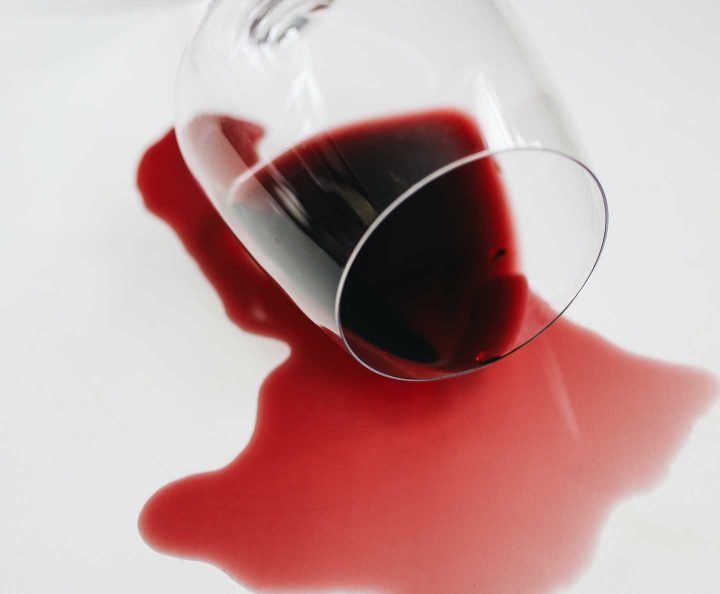Could it be, that the solution to avoid health problems due to alcohol consumption, is to drink in moderation, as many ads are recommending? Is wine really good for the heart, as some studies are claiming? We will get into details about this subject in this article.

The World Health Organization has identified alcohol consumption as one of the top ten risk factors for the global burden of disease. See this statement from the National Institute on Alcohol Abuse and Alcoholism, which reads:
Results of autopsy studies show that patients with a history of chronic alcohol consumption have smaller, lighter, more shrunken brains than nonalcoholic adults of the same age and gender. This finding has been repeatedly confirmed in living alcoholics using structural imaging techniques, such as computed tomography (CT) and magnetic resonance imaging (MRI)… Imaging reveals shrinkage to be more extensive in the folded outer layer (i.e., cortex) of the frontal lobe, which is believed to be the seat of higher intellectual functions… Shrinkage also occurs in deeper brain regions, including brain structures associated with memory, as well as in the cerebellum, which helps regulate coordination and balance.1)National Institute on Alcohol Abuse and Alcoholism, No. 47, April 2000.
An article in the journal of the American Medical Association, JAMA stated the following:
Alcohol should be considered an immunosuppressive drug of long-range effects.2)MacGregor, RR. Alcohol and immuno defense. JAMA Set, 19,1986, v 256, no. 11.
This means, alcohol decreases the ability of your body’s defense system to function. Regarding the possible benefits of alcohol for the heart, the World Health Organization concluded the following:
Although regular low to moderate consumption of alcohol is protective against coronary heart disease, other cardiovascular and health risks associated with alcohol do not favor a general recommendation for its use.3)Diet, Nutrition and the Prevention of Chronic Diseases,WHO, 2003, p. 90

What Helps Then the Heart?
But after all, is wine good for the heart or not? A study done in the Second Department of Cardiology, General Hospital, University of Attikon, Greece, published in December 2005 with the following title: Polyphenolic compounds from red grapes acutely improve endothelial function in patients with coronary heart disease.4)Lekakis J et.al. Polyphenolic compounds from red grapes acutely improve endothelial function in patients with coronary heart disease. · DOI: 10.1097/00149831-200512000-00013
This study showed that drinking red wine improves blood vessel dilation by acting on the endothelium, the tissue in the blood vessel wall. So in the study a group of men who had coronary heart disease were given a polyphenol extract from red grapes (600mg) dissolved in 20ml of water and some were given the 20ml of water with a placebo, so all the men thought they were taking the grape extract, and they were chosen at random by the researchers. They used high-resolution ultrasound to assess the dilation of the brachial artery, the main artery in the arm, after hyperemia, which is a redness caused by obstruction with a cuff in the arm. They measured vessel dilation in fasting, and 30, 60 and 120 minutes after taking the true extract or placebo.
Do you know the result? Those taking the grape extract actually had a dilation of the affected artery after 60 minutes, which was significantly higher than the baseline values. There was no change in the dilation of the arteries in the men who took the placebo.
The researchers concluded that components called polyphenols from red grapes improve the function of the blood vessel wall in patients with coronary heart disease. A substance that God put in the grape called Resveratrol is what benefits the vessels. These results, they say, could probably explain, at least in part, the favorable effects of red wine on the cardiovascular system. But serious science knows that ethanol alcohol is toxic to the human body in any amount, however some components of the grape are healthy, which are acquired in the same form with the consumption of grape or grape juice.

Other Problems with Alcohol
The liver is the main organ responsible for the elimination of alcohol. On average it takes an hour to process a drink. After a few weeks of drinking four to five drinks a day, liver cells begin to accumulate fat, and if the person insists on drinking, alcoholic hepatitis can develop with inflammation and destruction of liver cells, which leads to cirrhosis. Cirrhosis is an irreversible progressive disease, which leads to death. Fifteen percent of people who insist on drinking after alcoholic hepatitis develop cirrhosis of the liver.
A meta-analysis indicated that women who drink three or more drinks a day have a 69% higher risk of breast cancer than women who don’t drink. Another meta-analysis showed that women who had two to four drinks a day increased their risk of breast cancer by 41%. Studies do not distinguish between wine, beer or mixed drinks. Neither is safer than the other, the studies say. In 1993 the NIAAA published the results of studies that showed the link between heavy drinkers and cancer of the esophagus and mouth, larynx and colon.5)Research links alcohol abuse and breast cancer. Hazelden Foundation, Hazelden Foundation, www.hazelden.org consulted on March 21, 2006
Alcohol impairs diabetes control. Normally the liver helps to raise blood sugar between meals by releasing glucose. This does not happen when drinking alcohol, because the liver’s priority in this case will be eliminating alcohol. Thus, alcohol destabilizes blood glucose levels, which complicates the treatment of diabetics.

Alcohol abuse can interfere with male sexual function, causing infertility by atrophy of testosterone-producing cells, can impair sexual desire and create impotence by damaging nerves linked to erections. In women, alcohol can alter the production of female hormones, reducing menstruation and causing infertility.
In summary, we can see what protects the heart, what is good for the blood vessels is not red wine or other wine, but substances from the grape, especially a substance called Resveratrol. And we saw that due to the toxic effects of alcoholic beverages, it is best not to drink in moderation, but rather not to drink anything that contains alcohol. Think about it and better stay sober!

Stay Always Up to Date
Sign up to our newsletter and stay always informed with news and tips around your health.

Dr. Cesar Vasconcellos de Souza is working as a psychiatrist and international speaker. He is author of 3 books, columnist of the health magazine “Vida e Saúde” for 25 years, and has a regular program on the “Novo Tempo” TV channel.
References
| ↑1 | National Institute on Alcohol Abuse and Alcoholism, No. 47, April 2000. |
|---|---|
| ↑2 | MacGregor, RR. Alcohol and immuno defense. JAMA Set, 19,1986, v 256, no. 11. |
| ↑3 | Diet, Nutrition and the Prevention of Chronic Diseases,WHO, 2003, p. 90 |
| ↑4 | Lekakis J et.al. Polyphenolic compounds from red grapes acutely improve endothelial function in patients with coronary heart disease. · DOI: 10.1097/00149831-200512000-00013 |
| ↑5 | Research links alcohol abuse and breast cancer. Hazelden Foundation, Hazelden Foundation, www.hazelden.org consulted on March 21, 2006 |
Leave a Reply